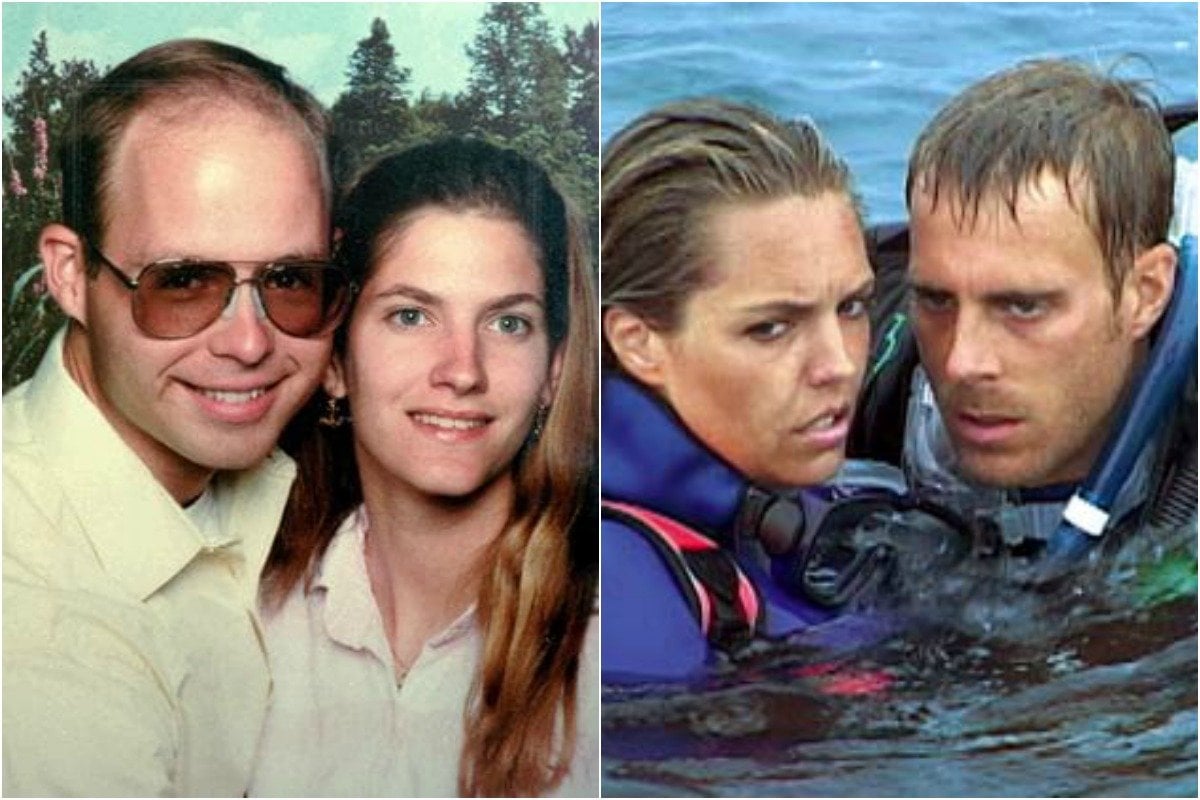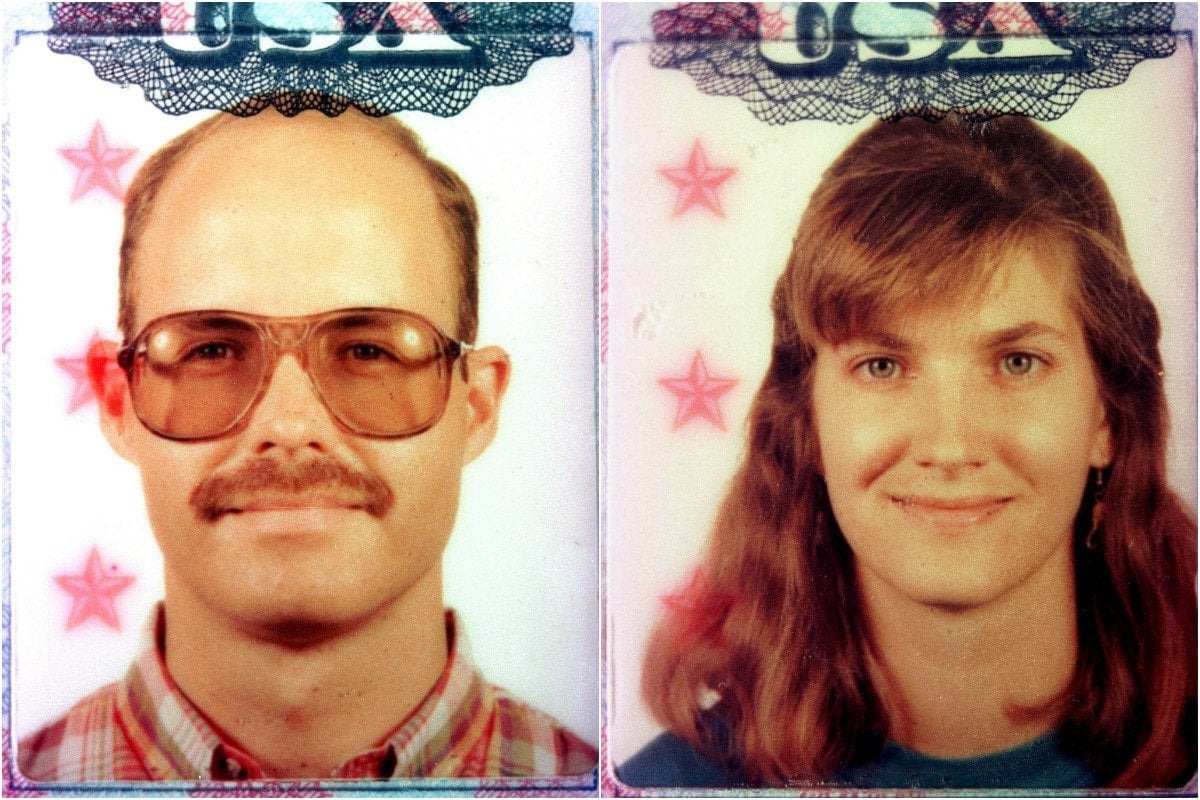
On January 25, 1998, American tourists Tom and Eileen Lonergan boarded a dive boat in Queensland for a day out exploring the Great Barrier Reef.
The married couple from Baton Rouge, Louisiana, had stopped off in Australia on their way home from Fiji and Tuvalu, where they had been serving in the Peace Corps for three years.
Eileen, 28, was an experienced scuba diver, and had encouraged Tom, 34, to take up the hobby as well.
They were excited to dive the world's largest coral reef system.
WATCH: The trailer for Open Water.
Outer Edge had 26 passengers on board that day, and the boat's skipper Geoffrey Nairn took them 60km off the coast for their adventure in the Coral Sea.
After three dives at St. Crispin Reef, the boat's crew conducted a head count of passengers onboard the vessel, before heading back to the mainland.
Two days later, on January 27, a bag containing the passports and belongings of Tom and Eileen was found on the dive boat.































































































